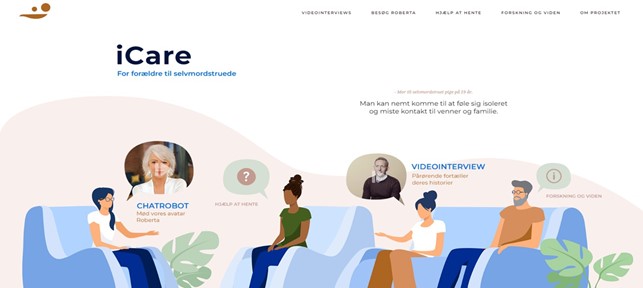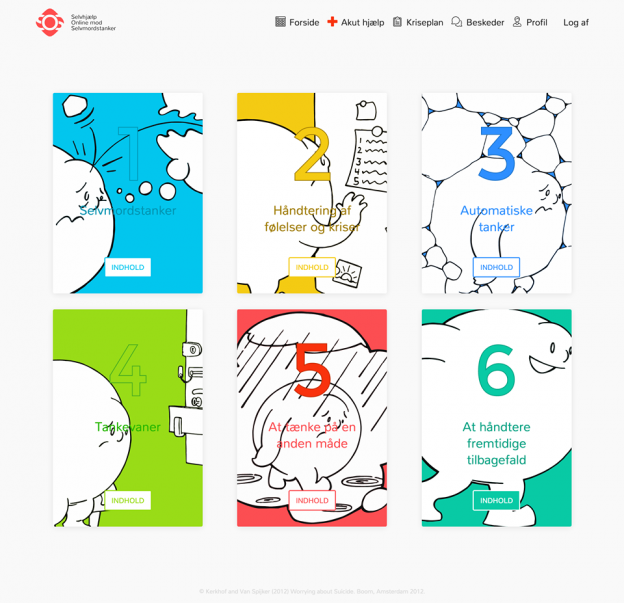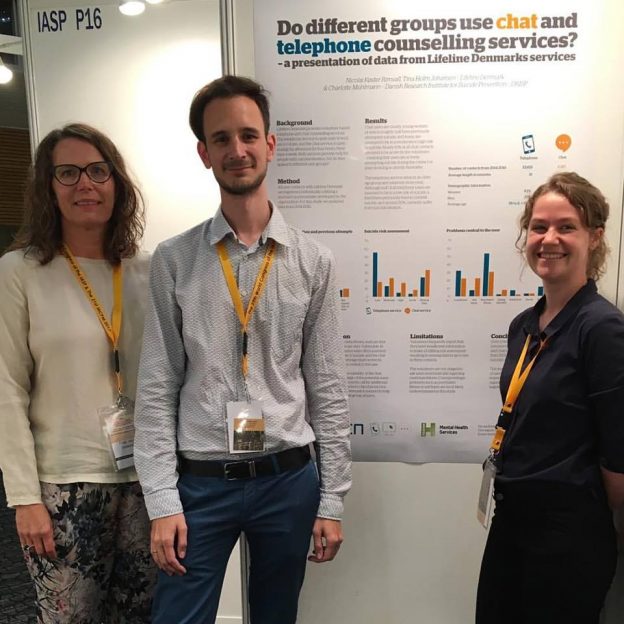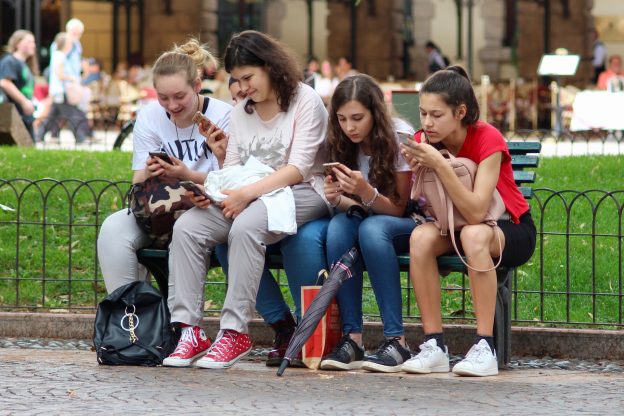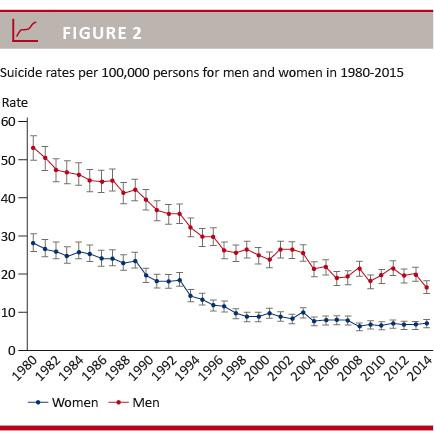
In collaboration with people with lived experiences, DRISP has developed a website for parents of children with suicide attempt (www.selvmordsforsøg.dk). The website is now finalised and freely available for all. On the website, users will find video clips with parents (re-recorded by actors) talking about their personal experiences, an ‘advice robot’ Roberta, Q&A, supporting statements, and information on available resources, such as helplines and NGOs. The website is available in Danish and does have some comparison to the one offered by the US-based healthtalk (https://healthtalk.org/introduction/self-harm-parents-experiences/)
In one of the video clips, a mother tells about how she has chosen to talk to her daughter about her suicidal thoughts: “I have had to ask my daughter directly how progressed these thoughts were, i.e. how she envisioned acting on the thoughts, and doing so without me getting angry or extremely sad”.
The wesite is avilable in Danish only
http://www.selvmordsforsøg.dk
DRISP: Anette Juel Kynde, Annette Erlangsen, Jette LS Larsen


